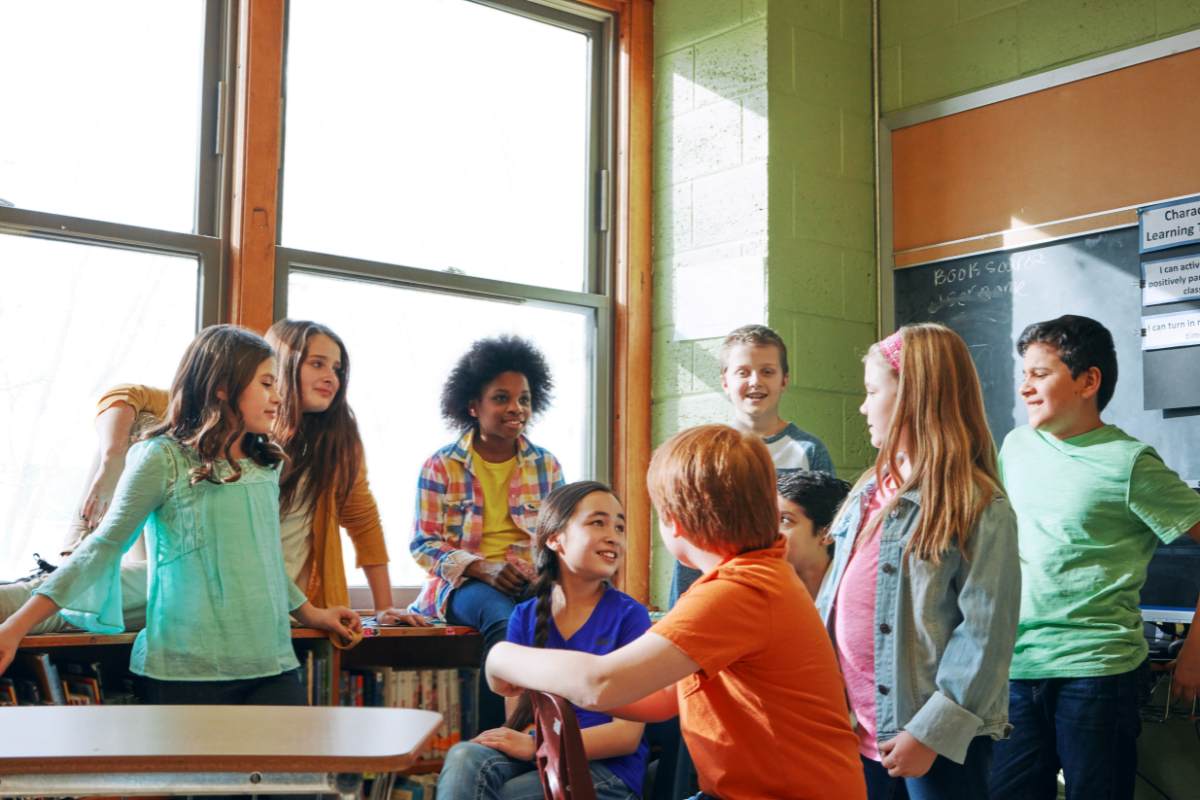Educational toys can be a great way to stimulate interaction among special children. These toys can help children with special needs develop their cognitive, social, and motor skills. In this article, we will introduce you to 10 educational toys that have been designed specifically to meet the needs of special children.
The toys that we will be discussing in this article have been carefully selected based on their ability to stimulate interaction and promote learning among children with special needs. Each toy has been designed with specific features that make it suitable for children with different types of special needs. Whether your child has difficulty with fine motor skills, social interaction, or cognitive development, there is a toy on this list that can help them learn and grow.
Benefits of Interactive Educational Toys for Special Children
Interactive educational toys offer several benefits for special children. These toys can stimulate their senses and provide a fun and engaging way to learn. Here are some of the benefits of using interactive educational toys for special children:
1. Develops Social Skills
Interactive educational toys encourage children to play together, which can help them develop social skills. By playing with others, they learn to take turns, share, and communicate effectively. This can be particularly beneficial for children with special needs who may have difficulty with social interactions.
2. Improves Cognitive Skills
Interactive educational toys can also improve cognitive skills such as problem-solving, reasoning, and critical thinking. These toys often require children to think creatively and use their imagination to solve problems, which can help improve their cognitive abilities.
3. Enhances Motor Skills
Many interactive educational toys require children to use their hands and fingers to manipulate objects, which can help enhance their motor skills. This can be particularly beneficial for children with special needs who may have difficulty with fine motor skills.
4. Encourages Exploration and Curiosity
Interactive educational toys can encourage children to explore and be curious about the world around them. These toys often have different textures, colors, and sounds that can stimulate their senses and spark their curiosity.
5. Provides a Safe and Controlled Environment
Interactive educational toys provide a safe and controlled environment for children to learn and explore. These toys are designed to be age-appropriate and safe for children to use, which can give parents peace of mind knowing that their child is playing with a safe and educational toy.
Overall, interactive educational toys can provide a fun and engaging way for special children to learn and develop important skills. These toys can help improve social, cognitive, and motor skills while encouraging exploration and curiosity in a safe and controlled environment.
Criteria for Selecting the Right Educational Toys
When selecting educational toys for special children, it is important to consider several criteria to ensure that the toys are both safe and effective. The following subsections outline some of the key criteria to consider.
Safety Considerations
Safety should always be the top priority when selecting educational toys for special children. Toys should be age-appropriate, durable, and free from any sharp edges or small parts that could pose a choking hazard. Additionally, toys should be made from non-toxic materials and should meet all relevant safety standards.
Stimulating Senses
Toys that stimulate the senses can be especially effective for special children. Look for toys that engage multiple senses, such as toys that make noise, have interesting textures, or emit bright colors or lights. These types of toys can help special children develop important sensory skills and can also be highly engaging.
Encouraging Social Interaction
Social interaction is an important part of any child’s development, and special children are no exception. Look for toys that encourage social interaction, such as games that require turn-taking or toys that can be played with in pairs or groups. These types of toys can help special children develop important social skills and can also be highly enjoyable.
Adaptability for Different Abilities
Special children may have a wide range of abilities, and it is important to select toys that can be adapted to meet their specific needs. Look for toys that can be adjusted to different skill levels or that can be used in a variety of ways. Additionally, consider toys that can be used by children with different types of disabilities, such as toys that can be played with using only one hand.
Top 10 Interactive Educational Toys
Interactive educational toys are an excellent way to stimulate learning and development in special children. The following is a list of the top 10 interactive educational toys that can help to stimulate interaction among special children.
Sensory Bins
Sensory bins are a great way to stimulate a child’s senses and promote exploration. These bins can be filled with a variety of materials such as sand, water, or rice, and can be used to teach children about textures, colors, and shapes.
Puzzle Solvers
Puzzle solvers are a fun and challenging way to promote problem-solving skills among special children. These puzzles come in a variety of shapes and sizes and can help to improve hand-eye coordination, spatial awareness, and critical thinking skills.
Building Blocks
Building blocks are a classic toy that can help to develop a child’s motor skills and creativity. These blocks come in a variety of shapes and sizes and can be used to build anything from simple towers to complex structures.
Musical Instruments
Musical instruments are a great way to promote creativity and self-expression among special children. These instruments can be simple, such as a tambourine or maracas, or more complex, such as a keyboard or guitar.
Interactive Storybooks
Interactive storybooks are a great way to promote literacy and language development among special children. These books come with interactive features such as sound effects and animations, which can help to engage children and make learning more fun.
Digital Learning Tools
Digital learning tools such as tablets and educational apps can be a great way to engage special children in learning. These tools can be used to teach a variety of subjects such as math, science, and language arts.
Role-Playing Games
Role-playing games can be a fun and engaging way to promote social skills and imagination among special children. These games can be as simple as playing house or as complex as a Dungeons and Dragons campaign.
Art and Craft Kits
Art and craft kits are a great way to promote creativity and fine motor skills among special children. These kits can include anything from coloring books to pottery kits and can be used to create a variety of different art projects.
Motor Skill Development Toys
Motor skill development toys such as balls, bean bags, and balance boards can be a great way to improve a child’s coordination and balance. These toys can be used to play games or to simply practice new skills.
Board Games for Social Skills
Board games can be a great way to promote social skills and teamwork among special children. These games can be as simple as Candyland or as complex as Settlers of Catan and can be used to teach a variety of different skills such as turn-taking and problem-solving.
Using Toys to Facilitate Learning in Inclusive Settings
Toys can be a powerful tool for educators and parents to facilitate learning in inclusive settings. Not only do they provide a fun and engaging way for children to learn, but they can also promote interaction and communication among children with special needs and their peers.
One effective way to use toys in inclusive settings is to incorporate them into structured activities. For example, a game of “I Spy” can be a great way to help children develop their language skills and improve their ability to communicate with others. Using toys such as picture cards or small figurines can make the game more engaging and help children stay focused.
Another way to use toys in inclusive settings is to provide children with a variety of options to choose from. This can help children with different interests and abilities find toys that they enjoy and are able to interact with. Additionally, providing a range of toys can help promote social interaction among children as they explore and play together.
Toys can also be used to help children develop specific skills. For example, building blocks can be used to help children develop their fine motor skills and spatial awareness, while puzzles can help children develop their problem-solving and critical thinking skills.
Overall, toys can be a valuable tool for educators and parents to facilitate learning and promote interaction among children with special needs and their peers in inclusive settings. By incorporating toys into structured activities, providing a variety of options, and using toys to help develop specific skills, children can have fun while learning and growing together.
Resources for Parents and Educators
In addition to the educational toys mentioned above, there are several resources available for parents and educators who work with special children. These resources provide valuable information and support to help children with special needs reach their full potential.
Websites
There are several websites that offer information on educational toys, activities, and resources for special children. Some of the most popular ones include:
- Autism Speaks
- National Autism Resources
- Special Needs Toys
- Fun and Function
These websites offer a wide range of educational toys and resources that can be used to stimulate interaction and learning among special children.
Books
There are also several books available that provide guidance and support to parents and educators who work with special children. Some of the most recommended ones include:
- “Teaching Young Children with Autism Spectrum Disorder” by Clarissa Willis
- “The Out-of-Sync Child: Recognizing and Coping with Sensory Processing Disorder” by Carol Kranowitz
- “101 Games and Activities for Children with Autism, Asperger’s and Sensory Processing Disorders” by Tara Delaney
These books offer practical advice and strategies to help children with special needs develop their skills and abilities.
Support Groups
Finally, there are several support groups available for parents and educators who work with special children. These groups provide a forum for sharing information, experiences, and support. Some of the most popular ones include:
- Autism Society of America
- National Down Syndrome Society
- Special Olympics
These support groups offer a range of resources and services to help parents and educators support and advocate for special children.


